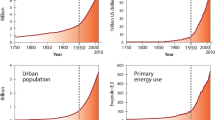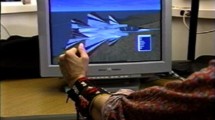Abstract
The article explores E.M. Forster’s story The Machine Stops (1909) as an example of dystopian literature and its possible associations with the use of technology and with today’s cyber culture. Dystopian societies are often characterized by dehumanization and Forster’s novel raises questions about how we live in time and space; and how we establish relationships with the Other and with the world through technology. We suggest that the fear of technology depicted in dystopian literature indicates a fear that machines are mimicking the roles that humans already play in relational encounters. Our relationship with machines frequently suggests a classical “I-it” situation. However, a genuine dialogue is where there is no master and where communication and understanding are achieved through the encounter and through openness to difference and to change. The article examines the ways machines and automata are imagined and become part of lived human existence, in the light of Martin Buber’s philosophy of dialogue and Merleau-Ponty’s phenomenology of perception and otherness. The problem seems to be how everyday technological interfaces can change the way we first perceive the world and the possibility that with certain types of mediation there is a loss of connection with the Other. It is argued that understanding dialogical conditions could help turn the relationship with technology into something more humane. Literature such as Forster’s is considered as an example of such a dialogical condition, suggesting ways of dealing with human dilemmas by exploring the field of possibilities.
Similar content being viewed by others
Notes
Reminiscent of Dostoevsky’s Notes from Underground, first published in 1864 (2004).
References
Andreae JV (2007) Christianopolis: an ideal of the 17th century. Cosimo, New York (trans. by F. Emil Held, 1916)
Bauman Z (2003) Liquid love: on the frailty of human bonds. Polity, Cambridge
Bicudo MAV (2009) O estar-com o outro no ciberespaço. ETD—Educação Temática Digital 10(2):140–156
Brassac C (2006) Computers and knowledge: a dialogical approach. AI Soc 20:249–270
Breton D (2003) Adeus ao corpo. In: Novaes A (ed) O homem-máquina: a ciência manipula o corpo. Companhia das Letras, São Paulo, pp 123–138
Buber M (1972) I and Thou. Charles Scribner & Sons, New York (trans. by W. Kauffman)
Buber M (2002) Between Man and Man. Routledge, London
Byford S (2015) This cuddly Japanese robot bear could be the future of elderly care. The Verge, April 28. http://www.theverge.com/2015/4/28/8507049/robear-robot-bear-japan-elderly. Accessed 5 June 2015
Ĉapek K (2014) R.U.R. - Rossum’s Universal Robots. The University of Adelaide Press, South Australia (Play trans. by D. Wyllie)
Chaplin C (1936) Modern Times. Film, United Artists, USA, 87 min
Dalton N (2015) In the event of robot apocalypse, just wait for a system crash. In: The conversation Jun 16 2015. http://theconversation.com/in-the-event-of-robot-apocalypse-just-wait-for-a-system-crash-43357?utm_medium=email&utm_campaign=Latest+from+The+Conversation+for+June+17+2015+-+2978&utm_content=Latest+from+The+Conversation+for+June+17+2015+-+2978+CID_adb7fab9b26383cd4ef6c5901a97bd9a&utm_source=campaign_monitor_uk&utm_term=In%20the%20event%20of%20robot%20apocalypse%20just%20wait%20for%20a%20system%20crash. Accessed 17 Jun 2015
Descartes R (1989) The passions of the soul. Hackett Publishing Company, Indianapolis
Dostoevsky F (2004) Notes from underground. Everyman’s Library, London (trans. by R. Pevear and L. Volokhonsky, 1864)
Douglas M (1988) Purity and danger: an analysis of the concepts of pollution and taboo. Ark Paperbacks, London
Forster EM (1909) The machine stops. Oxford and Cambridge Review
Forster EM (1947) The Collected Tales of E. M. Forster. Alfred A. Knopf, New York
Fuentes, C. (2005) In praise of the novel. In: Fifth International Literature Festival Berlin, Sept 6. http://www.literaturfestival.com/intern/reden/fuentes-engl/view. Accessed 6 Jun 2015
Guilherme A, Morgan WJ (2009) Martin Buber’s philosophy of education and its implications for adult non-formal education. Int J Lifelong Educ 28(5):565–581
Guo T (2015) Alan Turing: artificial intelligence as human self-knowledge. Anthropol Today 31(6):3–7
Hillegas MR (1967) The future as nightmare: H. G. Wells and the Anti-utopians. Oxford University Press, New York
Hogen A (2009) Cartesian bodies and movement phenomenology. Sport, Ethics and Philos 3(1): 66–74
Hudson A (2013) ‘A robot is my friend’: can machines care for the elderly? In: BBC technology. http://www.bbc.com/news/technology-24949081. Accessed 5 Jun 2015
Kim JH (2004) Cibernética, ciborgues e ciberespaço: notas sobre as origens da cibernética e sua reinvenção cultural. Horizontes Antropológicos 10(21): 199–219
Kubrick S (1968) 2001: a space odyssey. Film, Metro-Goldwyn-Mayer, UK/USA, 160 min
Lang F (1926) Metropolis. Film, UFA paramount pictures, Germany, 153 min
Marcel G (2007) Being and having. Read Books, Cambridge
Mauss M (1992) Techniques of the body. In: Crary J, Kwinter S (eds) Incorporations. Zone 6, New York, pp 455–477
McGonigal J (2011) Reality is broken: why games make us better and how they can change the world. Jonathan Cape, London
McGonigal J (2015) Personal Journal. In The Wall Street Journal. Tuesday, April 28:25
Merleau-Ponty M (1962) Phenomenology of perception. Routledge, London
Merleau-Ponty M (1973) The crisis of understanding. In Adventures of the dialectic. Northwestern University Press, Evanston, pp 9–26 (trans. by J. Bien)
More T (1967) Utopia. In: Greene JJ, Dolan JP (eds) The essential Thomas More. New American Library, New York (trans. by JP Dolan)
Morgan WJ, Guilherme A (2014) Buber and education: dialogue as conflict resolution. Routledge, Abingdon
Murray CD, Sixsmith J (1999) The corporeal body in virtual reality. Ethos 27(3): 315–343. http://onlinelibrary.wiley.com/doi/10.1525/eth.1999.27.3.315/pdf. Accessed 24 Jan 2011
Novaes A (2003) O homem-máquina: a ciência manipula o corpo. Companhia das Letras, São Paulo
Ortega F (2007) Corporeidade e biotecnologias: uma crítica fenomenológica da construção do corpo pelo construtivismo e pela tecnobiomedicina. Ciência & Saúde Coletiva, 12(2): 381–388
Parrinder P (ed.) (2000) Learning from other worlds: estrangement, cognition and the politics of science fiction and utopia. Liverpool University Press, Liverpool
Reuters (2015) Sci-fi TV series ‘Humans’ breathes new life into robot debate. Reaney, P Jun 26. http://www.reuters.com/article/2015/06/26/us-television-humans-idUSKBN0P628720150626. Accessed 27 Jun 2015
Richardson, K. (2010) Disabling as mimesis and alterity: making humanoid robots at the Massachusetts Institute of Technology. Etnofoor 22(1): 75–90
Romdenh-Romluc K (2007) Merleau-ponty and the power to reckon with the possible. In: Baldwin T (ed) Reading merleau-ponty: on phenomenology of perception. Routledge, Abingdon
Schrag CO (1988) The lived body as a phenomenological Datum. In: Morgan WJ, Meier L (eds) Philosophic inquiry in sport, reprinted from Metaphysical Journal (1952). Human Kinetics, Champaign
Scott R (1982) Blade runner. Film, Warner Bros, USA, 116 min
Seegert A (2010) Technology and the fleshly interface in Forster’s “The Machine Stops”: an ecocritical appraisal of a one hundred year old future. Journal of Ecocriticism 2(1):33–54
Shakespeare W (2000). The Tempest. In: Vaughan VM, Vaughan AT (eds), William Heinemann, London
Shelley MW (1818) Frankenstein: Or, The Modern Prometheus. Lackington, Hughes, Harding, Mavor, and Jones, Wordsworth, London
Stanton A (2008) Wall-E. Film, Walt Disney, USA, 98 min
Stern M (2006) Dystopian anxieties versus utopian ideals: medicine from a Frankenstein to the visible human project and body worlds. Sci cult 15(1):61–84
Trilling L (1964) E. M. Forster. New Directions, New York
Tucherman I (2006) Fabricando corpos: ficção e tecnologia. Comunicação, mídia e consumo 3(7): 77–92
Turing AM (1950) Computing machinery and intelligence. Mind, New Series 59(236): 433–460. http://www.jstor.org/stable/2251299. Accessed 18 Jan 2016
Turkle S (2011) Alone together: why we expect more from technology and less from each other. Basic Books, New York
Vallor S (2012) Flourishing on facebook: virtue friendship & new social media. Ethics Inf Technol 14:185–199
Vallor S (2014) Moral deskilling and upskilling in a new machine age: reflections on the ambiguous future of character. Philosophy and Technology, 1–18. http://link.springer.com/article/10.1007%2Fs13347-014-0156-9. Accessed 18 Jan 2016
Varela F, Thompson E, Rosch E (1991) The embodied mind: cognitive science and human experience. MIT Press, Cambridge
Vincent J (2014) Japanese ‘robot with a heart’ will care for the elderly and children. The independent, Thursday 05 June. http://www.independent.co.uk/life-style/gadgets-and-tech/japanese-robot-with-a-heart-will-care-for-the-elderly-and-children-9491819.html. Accessed 6 Jun 2015
Waterfield R (1994) Plato: republic. Translated, with notes and an introduction. Oxford World’s Classics, Oxford
Wilcox FM (1956) Forbidden planet. Film, Metro-Goldwyn-Mayer, USA, 98 min
Wilson RA, Foglia L (2015) The Stanford Encyclopedia of Philosophy (Winter 2015 Edition), in: Zalta EN (ed) Embodied cognition URL = http://plato.stanford.edu/archives/win2015/entries/embodied-cognition/. Accessed 18 Jan 2016
Author information
Authors and Affiliations
Corresponding author
Additional information
W. John Morgan—Honorary Professor at School of Social Sciences, Cardiff University, Cardiff, Wales, UK
Rights and permissions
About this article
Cite this article
Zimmermann, A.C., Morgan, W.J. E. M. Forster’s ‘The Machine Stops’: humans, technology and dialogue. AI & Soc 34, 37–45 (2019). https://doi.org/10.1007/s00146-017-0698-3
Received:
Accepted:
Published:
Issue Date:
DOI: https://doi.org/10.1007/s00146-017-0698-3




